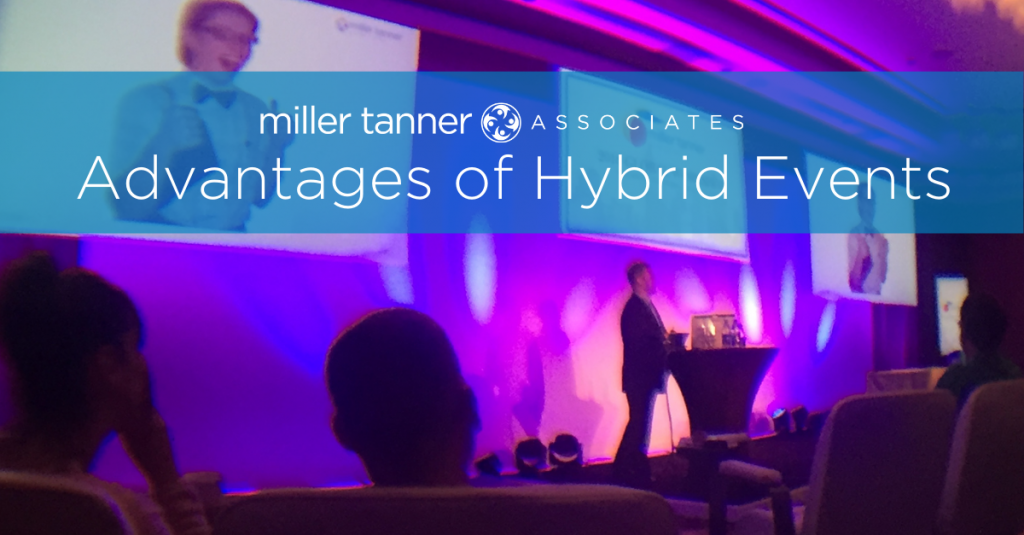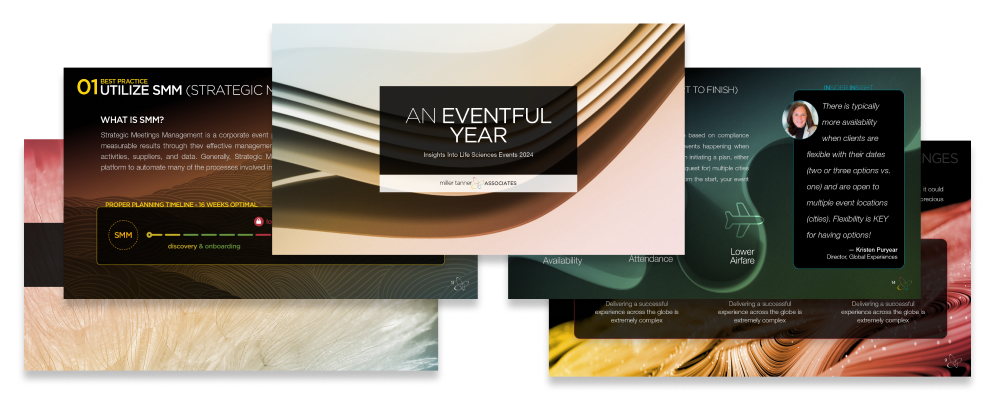
5 Advantages of Hybrid Events
Hybrid events have always been a great event solution. For years, Miller Tanner Associates (MTA) has been using a combination of face-to-face, virtual, and hybrid events to enhance learning, strengthen the conversation before or after an event, boost return on investment, and improve audience connection. Combining the best of both virtual and in-person events, hybrid events offer powerful advantages that can boost the overall success of your event.
1. Increased Agility in Contingency Planning
On a practical level, the great advantage of a hybrid model is that it offers a built-in contingency plan should situations change. For example, the scenario might arise that weeks prior to your face-to-face event, your event needs to partially or fully pivot to virtual as a result of travel restrictions in the country from where your audience is traveling or where your event is hosted. Similarly, hybrid events allow the flexibility for all attendees to participate at their comfort level. Where it’s safe to return to in-person events, attendees can participate face-to-face; and for those unable to attend in-person, hybrid offers the opportunity to have a similar experience virtually. With hybrid events, you can quickly convert your entire conference into a fully virtual experience.
2. Ensure Safety During Uncertainty
As we know, there will be guidelines for all face-to-face events moving forward, but some of those restrictions and safety measures aren’t enough for certain portions of your audience who may be impacted for a variety of reasons such as health risk factors, travel restrictions, or childcare limitations. The hybrid event then enables you to customize your event, to ensure that your participants can engage at their comfort level. For some people that will be virtual and for others that will be face-to-face.
3. Expand Your Audience
Another important advantage of hybrid events is the ability to expand to virtual audiences unable to travel to your event. Audiences are craving great content and exceptional virtual experiences. They want to learn more, attend more, and experience more. As a result, we’re seeing increases in expansions of audiences allowing for reach that didn’t exist before.
4. Diversity and Inclusion
In addition to expanding the audience, hybrid events enable us to break through barriers of exclusion and to expand to new audiences for the benefit of diversity and inclusion. By combining a virtual option with your face-to-face event, your event becomes readily accessible to those who may not otherwise be able to attend due to physical mobility, financial resources, location, health issues, or disabilities.
Miller Tanner Associates recently planned an event that included a virtual component. By offering the virtual portion to the audience, the event gained a 2100% increase in audience expansion in 40 countries as opposed to its 200-person face-to-face events in two U.S. cities a year prior. This is an example of the far-reaching benefits that a hybrid event can provide to all audiences regardless of ability and accessibility.
5. Sponsorship Awareness
Hybrid events have the potential to expand your sponsor’s brand by tenfold. Not only do hybrid events allow for expanded brand exposure, but also allow you to build interactive content within the virtual platform to improve the return on investment for your sponsor.
Whether you are designing a branded platform with clickable links to the sponsor’s website, trackable sponsor discounts, promotional videos, or breakout sessions led by the sponsor representatives, there’s an opportunity for more tangible interaction among your sponsors and your audience. All of this results in measurable data that gives the sponsor further insight into their target audience.

